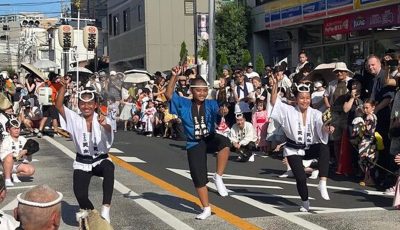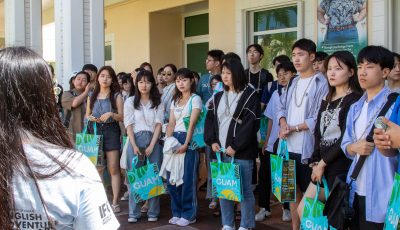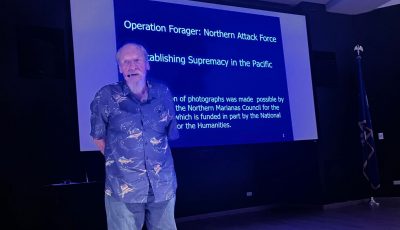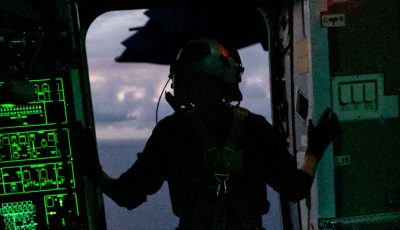US and Japan associations
The United States has a deep colonial and historical legacy relationship with the government of Japan. This relationship as it currently stands is centered around post-World War II military matters, economics, and energy. As is the case with South Korea, the United States-Japan partnership is based on the need for America to be able to exercise and exert influence throughout the Northeast Asian corridor. For Japan, this relationship enables Japanese firms to maintain access to American markets to sell goods and services. Japan and the United States have a mutual security treaty in place that outlines how America will come to Japan’s aid should it be attacked.
The United States maintains a multitude of bases throughout Japan—like South Korea— housing tens of thousands of military personnel. This has produced domestic cross-currents of both support and opposition to the U.S. military presence among the Japanese population.
For the people of Okinawa Prefecture in particular, domestic basing of American military personnel and resources has been a very sensitive political topic. Okinawa Prefecture houses a disproportionate number of American military bases and an even greater percentage concentration of American military personnel in relation to all other locations throughout Japan.
Increased comity found in the U.S.-Japan relationship has orbited around aligned mutual security interests tied to readiness, ballistic missile defense, American basing of ships, the protection of commercial ocean-based transit routes, and the use of space-based weapons to defend Japan. As evidence of this trend, Japan continues to purchase greater amounts of its military weaponry from the United States and the Pentagon remains highly committed to further enhancing military readiness in the region.
Both Japan and the United States have the desire to see the entire Korean Peninsula denuclearized but based on the nature of policy constructs currently in place, this is something that will not be realized anytime in the foreseeable future.
China remains one central point of interest for the bilateral American-Japan partnership as it continues to grow militarily. North Korea is another central point of interest because of DPRK’s desire to grow its nuclear weapons and ballistic missile programs.
Japan, as has been the case with South Korea, has at times contemplated developing its own organically produced nuclear weapons program in the event America decided to partially withdraw from the region.
Impact on the Marianas
The relationship of the Chamorro people with the country of Japan is one historically steeped in colonialism, extreme episodic violence, and longstanding cooperation. It is a relationship that has affected every single Chamorro Pacific Islander family throughout the archipelago for over 100 years.
Today, the Marianas Islands-Japan relationship can be characterized through the lens of tourism, travel, business, and cultural/educational interchanges. In addition, many of our people love Japanese food and have long adopted several elements of Japanese cuisine into their diets, especially those from the Northern Marianas.
While these relationships are intrinsically important to our people, the broad strategic military security end state between the United States and Japan is now founded in part on the upcoming base relocation of thousands of Marines to Guam and to train throughout the archipelago.
This issue remains complex and sits poorly with many Chamorros, in part because of the lack of any real say and decision-making authority that has never been extended to our ancient Pacific Islander people. The risks of environmental damage to key natural resources such as fresh water, and the desecration and destruction of rare ancient Chamorro human and cultural resource corridors remain unresolved to the full satisfaction of our people.
It is important that we as Pacific Islanders remember that Japan-U.S. bilateral talks in response to the brutal 1995 rape of a 12-year-old girl by two Marines and a sailor in Okinawa has brought about tremendous consequences that are directly affecting us all.
The enormity of these consequences cannot be understated. Japan will contribute over $3 billion to help defray housing relocation costs of select Marine units to Guam, while the United States and the government of Japan remain engaged with responding to Japanese opposition to other basing and environmental challenges particular to Okinawa.
What’s next
Our Chamorro political leaders throughout the Marianas have the incentive to read and understand several aspects of the military security relationship between Japan and the United States.
Our Pacific Island leaders have the incentive to read and familiarize themselves with the new Alliance Coordination Mechanism, a tool which outlines how both Japan and the United States will manage regional contingencies.
Our leaders also have the incentive to learn more about how Okinawans have dealt and managed tensions stemming from environmental damage, personal safety, crime, and aircraft noise associated with Pentagon-sponsored activities.
There is also the incentive to identify and appreciate the differences with how Japan-based laws are both applicable and non-applicable to U.S. military actions and personnel matters in-country, driven by an agreed-upon status of forces document.
These and other factors or concerns are constant reminders that the Japanese-U.S. relationship is a sensitive one. For Pacific Islanders, the same holds true for military-villager relations.
We should expect to see Guam get congressional funding for the construction of an Aegis ballistic missile defense shore-based system. Japan was going to act as host for a shore-based Aegis ballistic missile defense system but changed its mind not to move forward due to a variety of reasons ranging from local safety matters to government of Japan constitutional matters.
The U.S. Japan relationship remains extensive, complex, and evolving.



























